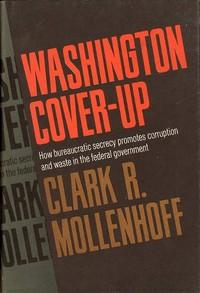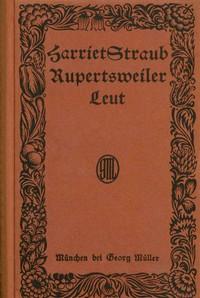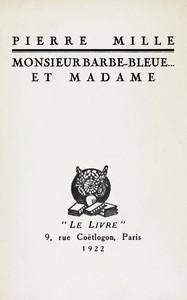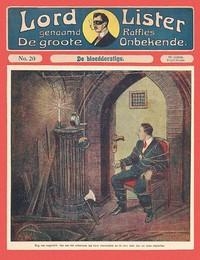|
|
Read this ebook for free! No credit card needed, absolutely nothing to pay.Words: 59277 in 23 pages
This is an ebook sharing website. You can read the uploaded ebooks for free here. No credit cards needed, nothing to pay. If you want to own a digital copy of the ebook, or want to read offline with your favorite ebook-reader, then you can choose to buy and download the ebook.

: Washington cover-up by Mollenhoff Clark R Clark Raymond - Government information United States; Executive privilege (Government information) United States@FreeBooksThu 08 Jun, 2023 The Army-McCarthy hearings that had given rise to the famous letter ended on June 17, 1954. However, it was not necessary to wait for the official reports made public on October 30, 1954, to know that Senator McCarthy was finished as a political power--and that the administration would use the "executive privilege" precedent again. As an aftermath of the Army-McCarthy hearings, a charge was filed that Senator McCarthy had conducted himself in a manner "unbecoming a member of the United States Senate." And on August 2, 1954, the U. S. Senate decided by the overwhelming vote of 75 to 12 to investigate Senator McCarthy's conduct. The subject of inquiry was Senator McCarthy's severe tongue lashing of Brigadier General Ralph Zwicker, of Camp Kilmer, N. J. Major General Kirke B. Lawton, a former commanding general of Fort Monmouth, N. J., refused to testify about conversations with General Zwicker. He claimed "executive privilege" under the May 17, 1954, letter from President Eisenhower. Edward Bennett Williams, who was serving as counsel for Senator McCarthy, questioned the applicability of the May 17 letter: "Don't you know, General, that order of May 17, 1954, referred only to the Government Operations Committee and the hearing then in session which was commonly known as the Army-McCarthy hearing?" General Lawton replied that he had been advised that the May 17 letter "not only applied to the so-called Mundt committee but it applies to this or any other." Chairman Watkins excused General Lawton and wrote Defense Secretary Charles E. Wilson asking clarification. Defense Secretary Wilson replied that Generals Lawton and Zwicker would be allowed to testify and produce documents unless their action would be "in violation of national security regulations or a violation of the President's order of May 17, 1954." There could be little doubt now that the Defense Department intended to make the May 17, 1954, letter a part of its basic doctrine with all of the great blanket of secrecy that this would provide. I was now more concerned than ever, for I had hoped that the May 17 letter was the one-shot secrecy claim that so many of my colleagues thought it was. But again the name of Joe McCarthy was mixed up in the investigation, and in 1954 it would have been difficult to get any cool thinking on a subject that remotely touched on the controversial Wisconsin Republican. Still, I couldn't help worrying that the new and expanded doctrine of "executive privilege" was just too convenient a cover for those who wished to hide their activities from Congress, the press, or the public. It could be used by the incompetent as well as the corrupt. It seemed strange to me that this doctrine would be set forth in the administration of a President who would be regarded as one of the mildest Chief Executives, and certainly one of the least inclined toward dictatorial action. I was not worried that President Eisenhower would try to use it as a tool for totalitarianism. But with this doctrine in force a man who was inclined toward totalitarian methods might readily administer the laws as he pleased. Secrecy Fix on Dixon and Yates Not until the summer of 1955 did it become apparent that the May 17, 1954, Eisenhower letter would be used on matters unrelated to Senator Joseph R. McCarthy. Throughout the fall and winter of 1954, I spoke and wrote about the potential danger of "executive privilege" as it had been applied in the Army-McCarthy hearings and in the McCarthy censure hearings. A few persons saw it my way. But the general tendency to believe that the letter was written solely to deal with Senator McCarthy held fast, and a general faith prevailed that the Eisenhower administration would not use it to cover up mistakes, corruption, or improprieties. Then suddenly, in June 1955, the White House reinvoked the letter as justification for refusing to make records available to a Senate committee investigating the Dixon-Yates contract. Free books android app tbrJar TBR JAR Read Free books online gutenberg More posts by @FreeBooks
: Rupertsweiler Leut by Straub Harriet - Country life Fiction; Women Fiction; Black Forest (Germany) Fiction@FreeBooksThu 08 Jun, 2023

: Notes de route by Eberhardt Isabelle Barrucand Victor Editor Dinet Etienne Illustrator Noir Maxime Illustrator Rochegrosse Georges Illustrator - Africa North Description and travel; Morocco Description and travel; Tunisia Description and travel; Algeria De@FreeBooksThu 08 Jun, 2023
|
Terms of Use Stock Market News! © gutenberg.org.in2025 All Rights reserved.






